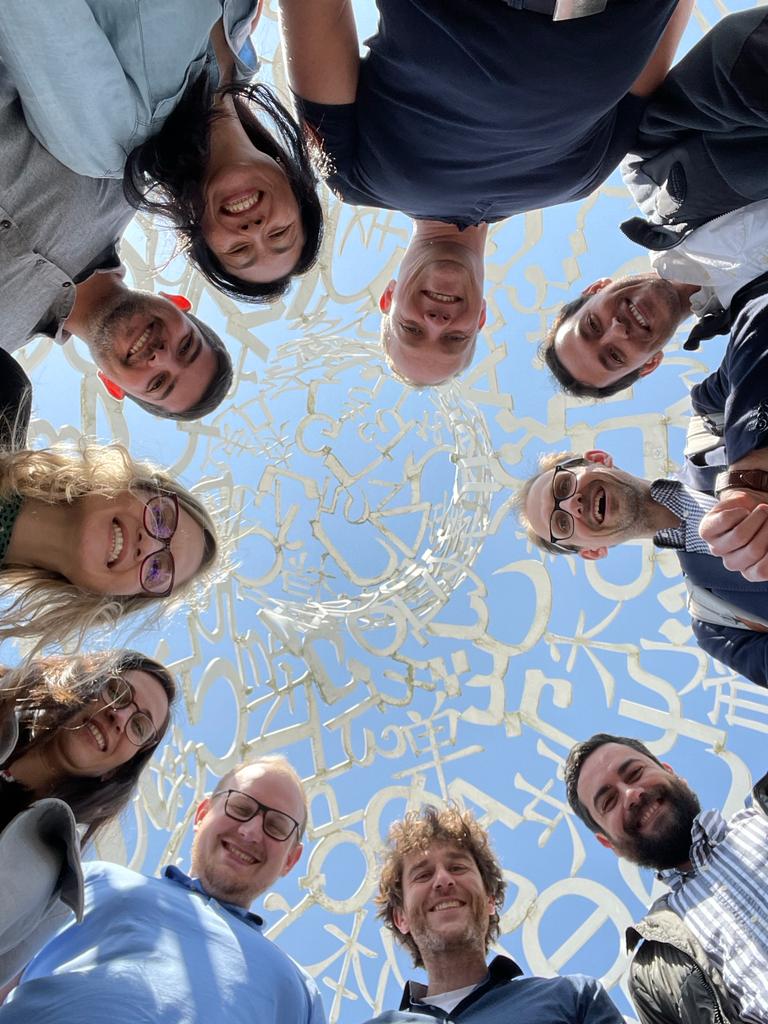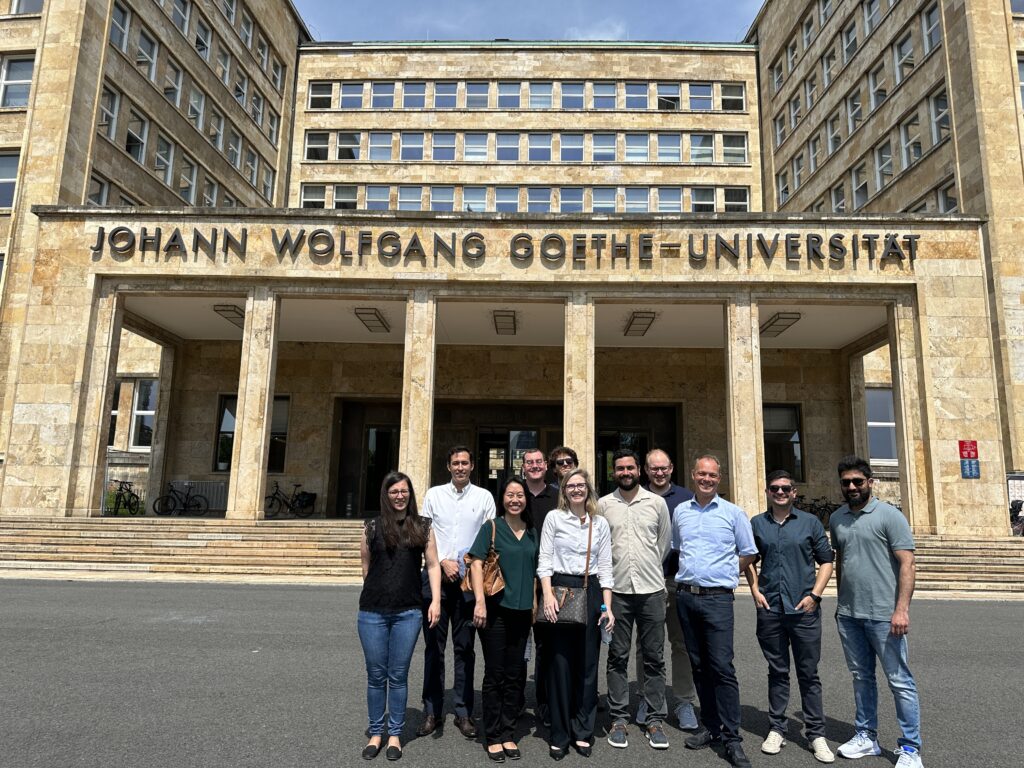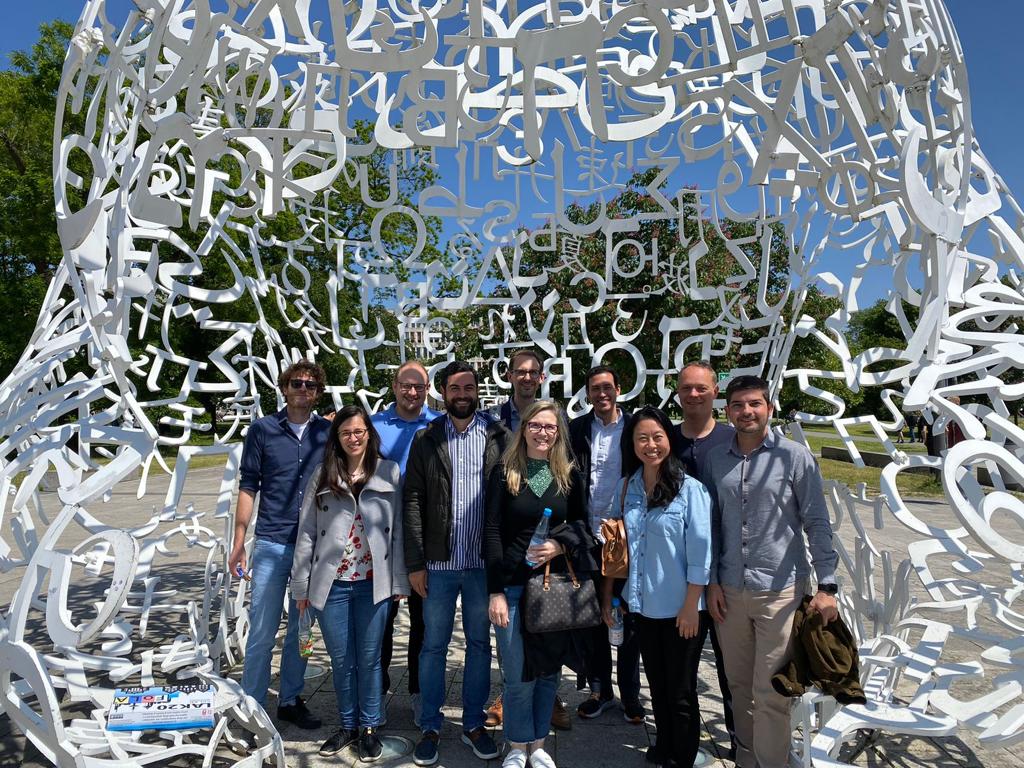 From May 22 to 25, 2023 five esteemed guest researchers from Brazil visited the EduTec team in Frankfurt in the context of the Humboldt Foundation’s Connect Program. This productive exchange not only shed light on the current state of Learning Analytics (LA) research in Brazil and Germany but also paved the way for potential collaborative research activities.
From May 22 to 25, 2023 five esteemed guest researchers from Brazil visited the EduTec team in Frankfurt in the context of the Humboldt Foundation’s Connect Program. This productive exchange not only shed light on the current state of Learning Analytics (LA) research in Brazil and Germany but also paved the way for potential collaborative research activities.
Status of LA research in Brazil
The week began with a discussion of the role of LA in the global South. Rafael Ferreira Mello from the Federal Rural University of Pernambuco (UFRPE) emphasized the importance of adapting LA methodologies to the specific context and needs of Brazil, ensuring inclusivity and accessibility in educational initiatives. Diego Dermeval from the Universidade Federal de Alagoas (UFAL) highlighted the potential of AI and LA in supporting teachers and their significance in enhancing the implementation of educational public policies in Brazil, enabling evidence-based decision-making for educational reforms. After that Elaine Harada Teixeira de Oliveira from the Federal University of Amazonas (UFAM) discussed LA applications in the domain of introductory programming, enabling educators to identify areas of difficulty and tailor instructional strategies accordingly. Rafael Dias Araújo from the Federal University of Uberlandia (UFU) then highlighted initiatives supporting the Brazilian National Textbook Program and the use of games for education. The potential of gamification and games in making learning engaging and effective were underlined by Isabela Gasparini from the Santa Catarina State University (UDESC).
Status of LA research in Germany
 Then the EduTec team continued by showcasing the cutting-edge developments in LA within Germany. The presentation began with an introduction of studiumdigitale der Goethe University, which works closely with DIPF and is dedicated to promoting digital learning and innovative approaches in higher education. Hendrik Drachsler introduced the Highly Informative Learning Analytics (HILA) Research Program and its focus on developing new tools and methods to collect, analyze and interpret data that can help educational institutions to understand the learning process better. The EduTec researchers then shed light on the Open Learning Analytics Indicator Repository (OpenLAIR), a learning analytics tool that helps course designers, teachers, students and educational researchers to make informed decisions about the selection of learning activities and LA indicators for their course design or LA dashboard. The significance of multimodal learning analytics and learning design was emphasized, highlighting the integration of various data sources (such as video, audio and text) to gain comprehensive insights into student learning experiences. Lastly, the Fellowship of the Learning Activities & Analytics (FoLA2) method was presented: this method aims to facilitate the practical application of learning analytics in existing instructional designs, making it easier for educators to understand how their programs are working and make informed changes accordingly.
Then the EduTec team continued by showcasing the cutting-edge developments in LA within Germany. The presentation began with an introduction of studiumdigitale der Goethe University, which works closely with DIPF and is dedicated to promoting digital learning and innovative approaches in higher education. Hendrik Drachsler introduced the Highly Informative Learning Analytics (HILA) Research Program and its focus on developing new tools and methods to collect, analyze and interpret data that can help educational institutions to understand the learning process better. The EduTec researchers then shed light on the Open Learning Analytics Indicator Repository (OpenLAIR), a learning analytics tool that helps course designers, teachers, students and educational researchers to make informed decisions about the selection of learning activities and LA indicators for their course design or LA dashboard. The significance of multimodal learning analytics and learning design was emphasized, highlighting the integration of various data sources (such as video, audio and text) to gain comprehensive insights into student learning experiences. Lastly, the Fellowship of the Learning Activities & Analytics (FoLA2) method was presented: this method aims to facilitate the practical application of learning analytics in existing instructional designs, making it easier for educators to understand how their programs are working and make informed changes accordingly.
Future Research Activities between Brazilian Universities and DIPF
 After an exchange of insights, the discussions revolved around identifying common research interests and potential areas of collaboration between the Brazilian universities and DIPF. Recognizing the strengths and expertise of both sides, the visiting guests and the EduTec Team looked for possibilities for joint research projects, sharing of resources and knowledge exchange with the goal of establishing long-term partnerships that would potentially facilitate the advancement of LA in both countries. All in all the visit served as a catalyst for future collaborations between Brazil and Germany and set the stage for a promising future in the realm of Learning Analytics.
After an exchange of insights, the discussions revolved around identifying common research interests and potential areas of collaboration between the Brazilian universities and DIPF. Recognizing the strengths and expertise of both sides, the visiting guests and the EduTec Team looked for possibilities for joint research projects, sharing of resources and knowledge exchange with the goal of establishing long-term partnerships that would potentially facilitate the advancement of LA in both countries. All in all the visit served as a catalyst for future collaborations between Brazil and Germany and set the stage for a promising future in the realm of Learning Analytics.
